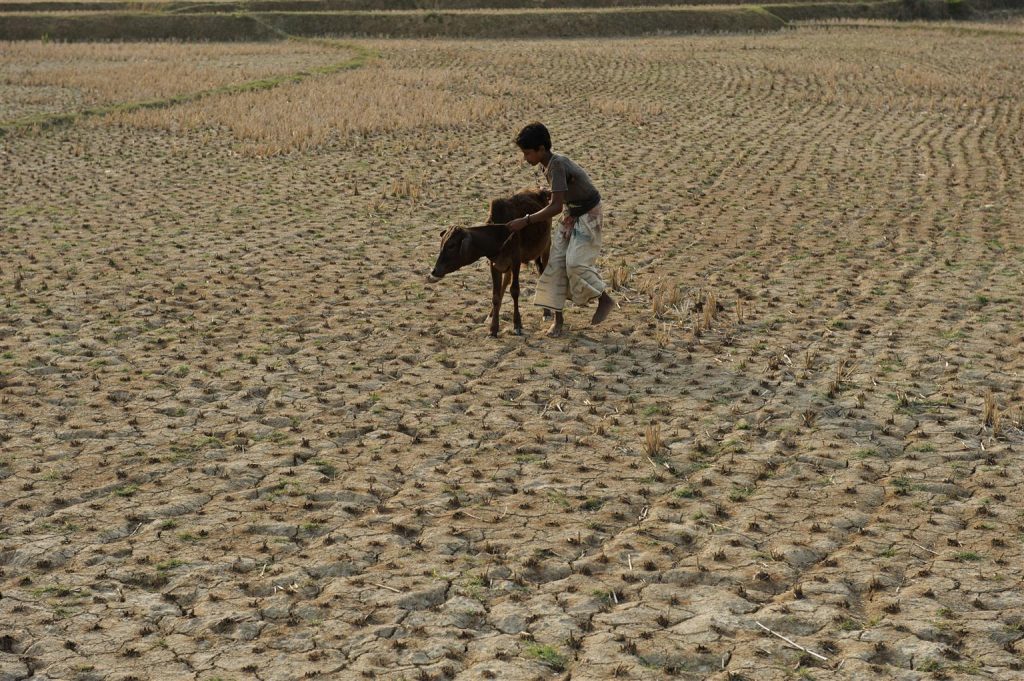Andrew Seal and Rob Bailey discuss the limitations of data-driven humanitarian efforts, and the lessons learned from the 2011 Somalia famine.
Briefing
Famine in Somalia and the Failure of Data-Driven Humanitarianism

Mohammed Shahin Ali, 14, walks through a field dried and cracked from lack of rain in search of grass for his cattle, in the village of Hat Bokoil, in the upazila (sub-district) of Nachole, Chapai Nawabganj District. I look after 19 cows, Mohammed said. There is drought everywhere because of lack of rain. I have to walk long distances to find grass for my cattle. It is very difficult. I hope it rains soon.
In October 2009, low-lying Bangladesh remains prone to natural disasters and especially susceptible to the effects of climate change. Localized cyclones and floods affect Bangladesh yearly, while larger scale disasters periodically wreak wider spread havoc. Their impact is exacerbated by endemic problems including food insecurity, entrenched poverty, malnutrition, pollution and limited access to basic services. The inhabitants of remote, rural areas, further constrained by limited infrastructure, are particularly vulnerable to environmental threats. This is especially the case for the inhabitants of chars small, sandy islands created, and destroyed, by floods or erosion. Lacking alternate places to live, char inhabitants farm or raise livestock, occupations that are highly vulnerable to seasonal monsoon flooding. Char schools are also threatened by impermanence and attendance is often low; domestic obligations, essential to their families' well-being, take precedence over childrens education. Survival itself is precarious. UNICEF programmes in Bangladesh in health and nutrition, water, sanitation and hygiene, education and child protection must also increasingly address the mounting effects of climate change.
Related content
Briefing
Key considerations: Introducing experimental vaccines during health emergencies
This brief provides an overview of the experimental stages of vaccine development during a disease outbreak and highlights key considerations at each stage from a social science perspective.
SSHAP
2025
Briefing
Supporting the mpox response for people with diverse sexual orientation, gender identity and/or gender expression in contexts where their rights are restricted
This brief provides a socio-behavioural analysis of the vulnerabilities, risks and operational key considerations for working with people with diverse sexual orientation, gender identity and/or expression in the mpox response.
SSHAP
2025
Briefing
Key considerations: mpox in the Busia-Malaba border region linking Uganda and Kenya
This brief summarises how mpox is perceived and managed in the Busia-Malaba border region that links eastern Uganda and western Kenya.
Central and East Africa Hub
SSHAP
2025
Factsheet
Remote response to Ebola outbreak in DRC
The Social Science in Humanitarian Action Platform is supporting UNICEF, WHO, IFRC and other partners in the Democratic Republic of Congo to respond to the Ebola outbreak in Equateur Province. The Platform has four key streams of action: 1) Rapid…
Central and East Africa Hub
SSHAP
2018


